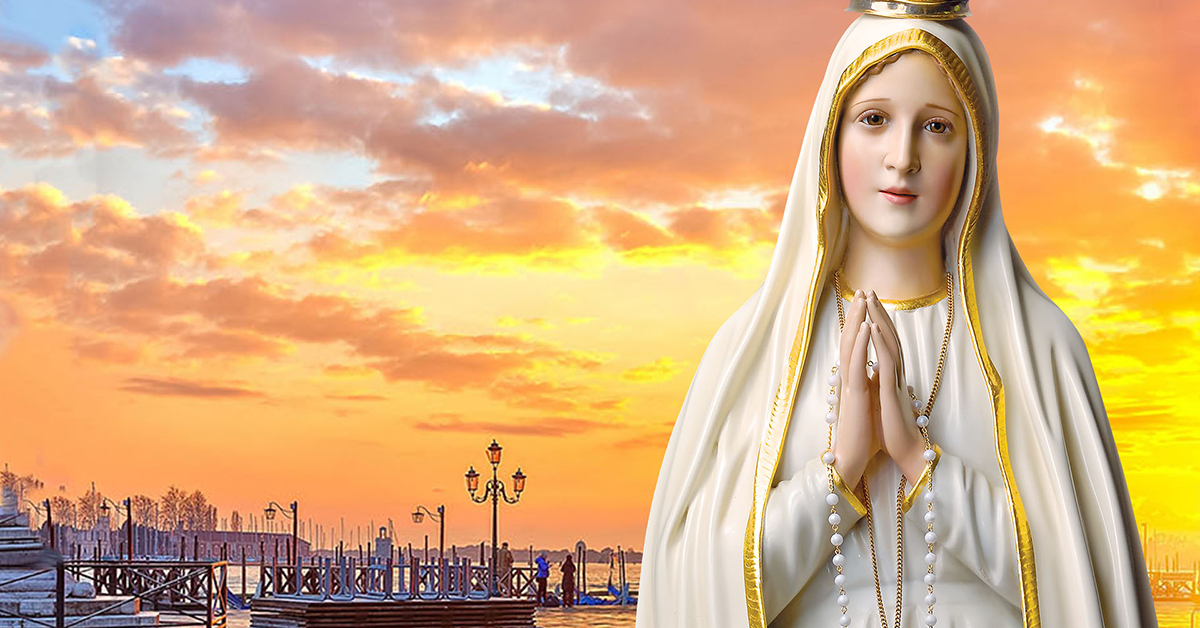What did our Blessed Virgin announce to this sinful humanity? What did she come to implore? Who would have the courage to reject an urgent request of the Mother of God?
God precedes his great interventions in history with numerous and varied signs. Frequently, He uses men of distinguished virtue to transmit his warnings to his people, or to predict future events.
This is how our Eternal Father proceeded in relation to the coming of the Messiah, his only begotten Son. The magnitude of this event, around which the history of men revolves, required a long and careful preparation. Thus, it was foreseen for many centuries by the Prophets of the Old Testament, in such a way that, on the occasion of the birth of Our Lord Jesus Christ, everything was prepared for his coming into the world. Even among the pagans, many expected some type of event that would give an outlet for the moral crisis in which the men of that time were immersed.
It could almost certainly be affirmed that the more important the anticipated event, the greater the greatness of the signs that precede it, the authority of the prophets who announce it and the waiting time.
The rules of God in dealing with men
 It would seem that, in his infinite wisdom, God, in his dealings with men, is guided by certain rules for which he very rarely gives exceptions.
It would seem that, in his infinite wisdom, God, in his dealings with men, is guided by certain rules for which he very rarely gives exceptions.
It is easy, in light of this rule of history, to evaluate the importance of the prophecies of Fatima, because whom announces it to us is not an angel, nor a great saint or prophet, but the very Mother of God. “The Roman Empire of the West was locked in a catastrophe illuminated and analyzed by the genius of a great Doctor, who was Saint Augustine. The decline of the Middle Ages was foreseen by a great prophet, St. Vincent Ferrer. The French Revolution, which marked the end of Modern Times, was foreseen by another great prophet, who was at the same time a great doctor of the Church, Saint Louis Marie Grignion de Montfort. The Contemporary Times, which seem to be on the cusp of plunging into a new crisis, enjoy an even greater privilege. Our Lady came to speak to men.” [1]
In Fatima, Our Lady predicts undeniably the advent of great punishments for humanity (some of which have already been fulfilled), if we do not stop offending God. However, more important, in a certain sense, than the announcement of divine punishments are the means of salvation indicated by the Mother of God: the prayer of the Rosary, the practice of the First Five Saturdays, the devotion to the Immaculate Heart of Mary. Its most immediate purpose is to give men the possibility of getting out of the tortuous ways of sin. If there were no other reason, it would be sufficient for an intervention as extraordinary as the Apparitions at Fatima.
In the end my Immaculate Heart will triumph!
In the meantime, there is something else, of paramount importance, that motivated the Mother of God to come in person to transmit her message to the three little shepherds. It is the announcement of the victory of the Blessed Virgin over the empire of Satan, that is, the Kingdom of Mary, announced by St. Louis Marie Grignion de Montfort and several other saints: “In the end my Immaculate Heart will triumph!” – affirmed Our Lady, in Fatima.
“It is a grandiose perspective of universal victory of the royal and maternal Heart of the Blessed Virgin. It is a soothing, appealing and above all majestic and exciting promise” [2]. […]
So that our eyes can contemplate the midday sun of that sun – the triumph of the Immaculate Heart of Mary – whose dawn has become Fatima on that day May 13, 1917, the Virgin Mary gives us the means: “If you do what you I tell you, many souls will be saved and they will have peace.”
A difficulty arises, meanwhile. The orders of Our Lady were not taken in consideration; Men continue to sin more and more. What reasons do we have to believe that Our Lady will fulfill her promise?
Her own words. For the Blessed Virgin only puts conditions to avoid punishments, but not to make her Immaculate Heart triumph. The text of the Message leaves no doubt. After the announcement of a succession of calamities that will come to mankind if we do not convert, Our Lady concludes, categorically, without putting any condition: “In the end, my Immaculate Heart will triumph!” How will we reach that final victory over sin? We do not know, because it does not seem to have been revealed by the Mother of God. Nevertheless, it is certain that for those who attend to her requests will be saved, and very possibly, will be called to participate in the magnificent triumph of the Immaculate Heart of Mary.
By Monsignor João S. Clá Dias, Fátima, Aurora do Terceiro Milênio, São Paulo-Brazil, April 1998, pp. 7-9
_______
[1] Plinio Corrêa de Oliveira, Fátima: Explicação e Remédio da Crise Contemporânea, in Catolicismo, nº 29, May 1953.
[2] Plinio Corrêa de Oliveira, Fátima Numa Visão de Conjunto, in Catolicismo, nº 197, May 1967.

